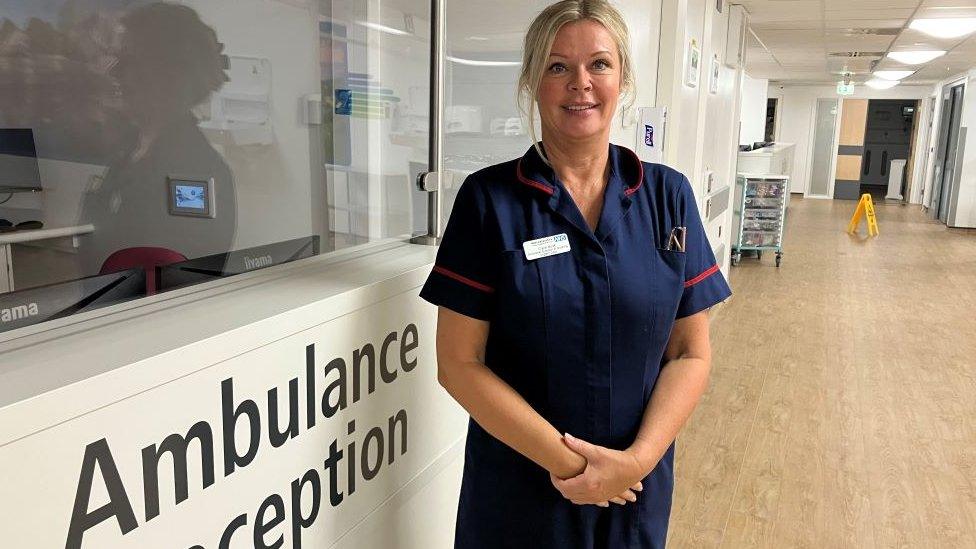Worcestershire's A&Es facing 'extreme pressure'
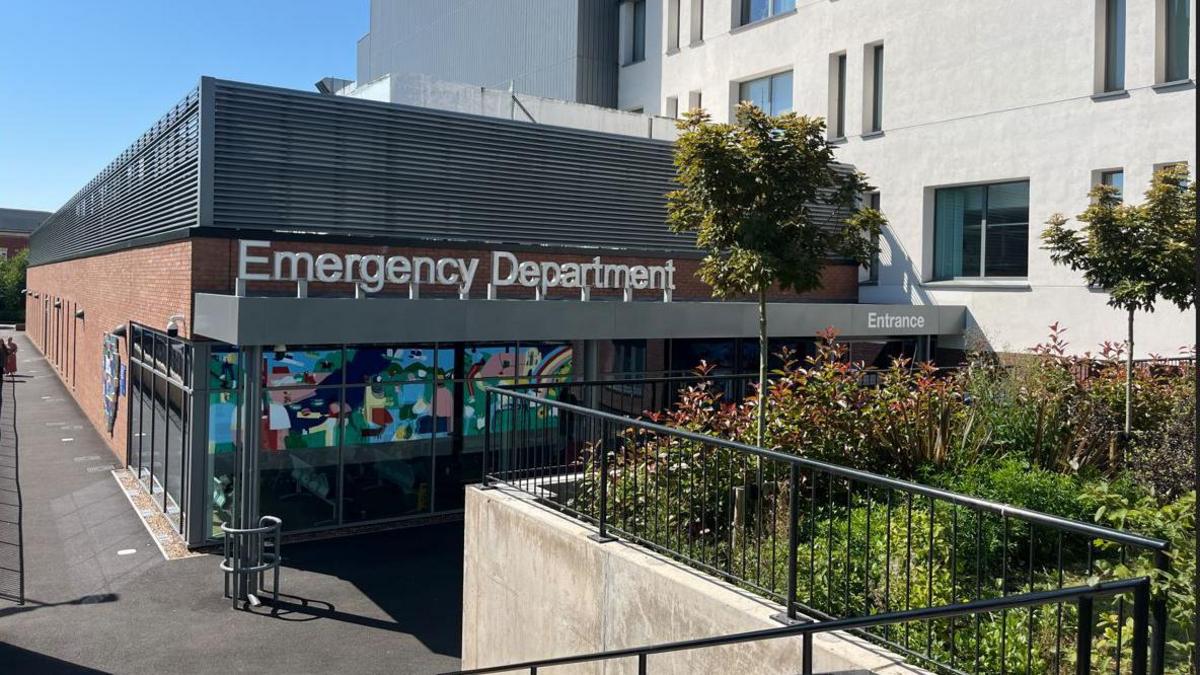
In October and November, patients had to be moved out of Worcestershire Royal's new A&E department because of damaged floors
- Published
"Extreme pressure" in Worcestershire's emergency departments has prompted the county's acute trust to declare three critical incidents in as many weeks.
The latest, declared on Monday, was stood down on Thursday.
Worcestershire Acute Hospitals NHS Trust has apologised for delays to treatment at its A&Es, which are based in Worcester and Redditch.
It said it had seen almost 1,000 more patients in November, compared with the same time last year, while the number of walk-in patients meant those arriving in ambulances had also been experiencing lengthy waits to be handed over.
In October, only 50.6% of people attending the county's emergency departments were treated, admitted or discharged within four hours.
At the same time, 1,268 ambulance patients waited more than an hour outside.
One walk-in patient, Tim Mason, who had to wait more than 11 hours in A&E without medication, said not enough doctors and nurses were on shift at night.
"A and E was appalling... I've got to question what their staffing levels are out of hours," he said.
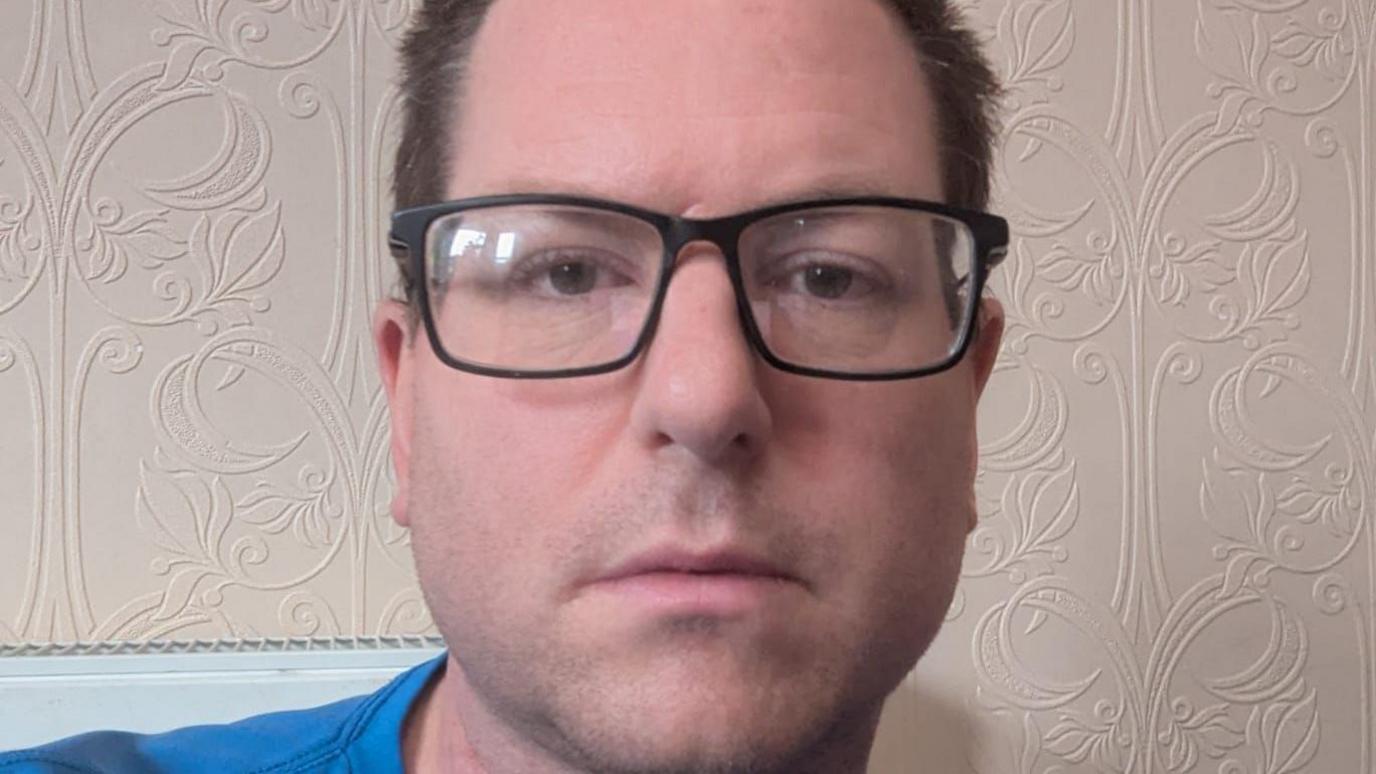
Walk-in patient Tim Mason said he spent eleven and a half hours waiting on the floor at the Worcestershire Royal's new emergency department last month
He had gone to the Worcestershire Royal Hospital at 22:00 GMT on 12 November with suspected deep vein thrombosis, after experiencing severe pain and swelling in his leg.
"It was a very, very busy night... I had to sort of sit on the floor in the waiting room," he said.
After an initial triage from a nurse, Mr Mason said he had to wait five hours for a blood test, and a total of 11 and a half hours to be admitted to the department's Same Day Emergency Care [SDEC] unit, when he finally received treatment.
He added: "They were absolutely fantastic when they realised I hadn't been given any blood thinners... within one minute I was having a heparin injection."
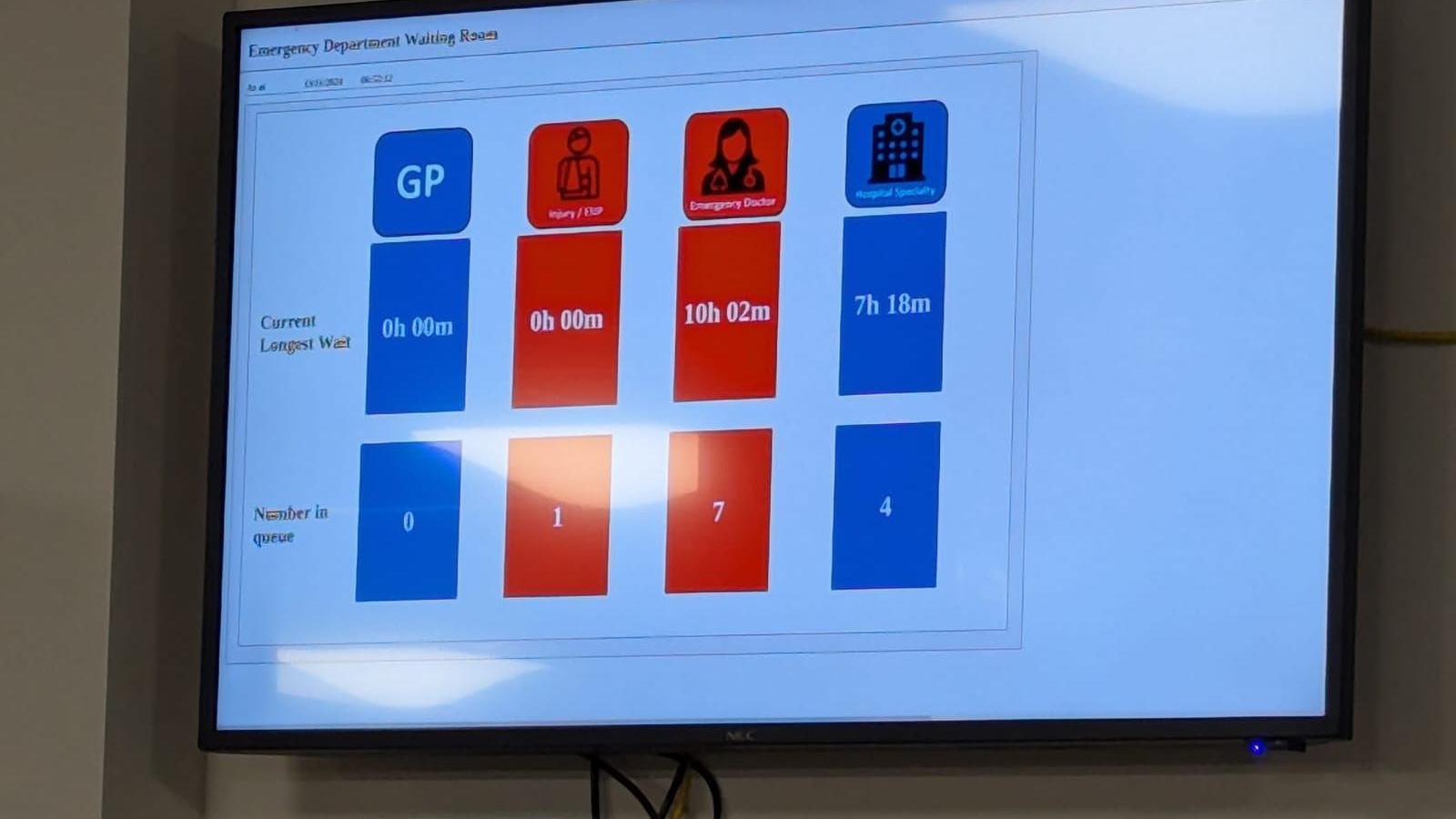
Tim Mason questioned whether enough staff were on shift at the Worcestershire Royal's emergency department overnight
After watching other patients wait in the emergency department overnight, Mr Mason questioned whether the hospital had enough capacity out-of-hours.
"My feeling was that A and E were just sitting on patients, not really treating them... just waiting for the magic time to come at 8am, where different departments would be open."
Mr Mason said he returned to the same emergency department two days later after experiencing further pain.
Despite asking the NHS 111 service to refer him straight to the hospital's SDEC unit, he said he again had to wait hours for treatment.
Stephen Collman, managing director of Worcestershire Acute Hospitals NHS Trust, apologised for the lengthy waits at its A&Es.
He said the critical incidents had been declared following "continuing, extreme pressure on our hospital sites".
By declaring a critical incident a hospital can deploy extra resources, such as more clinical staff focused on discharging patients back home, and request help from other care settings such as community hospitals.
"Our teams are continuing to work hard, alongside our partners across the wider health and care system, to reduce the pressure on ED [emergency departments], and ensure patients get the care they need," Mr Collman said.
He also urged patients to use the NHS 111 service before attending A&E, unless it was a life-threatening emergency.
"Remember that local Minor Injury Units can treat a variety of injuries including wounds, sprains, strains and minor burns with much shorter waiting times," he added.
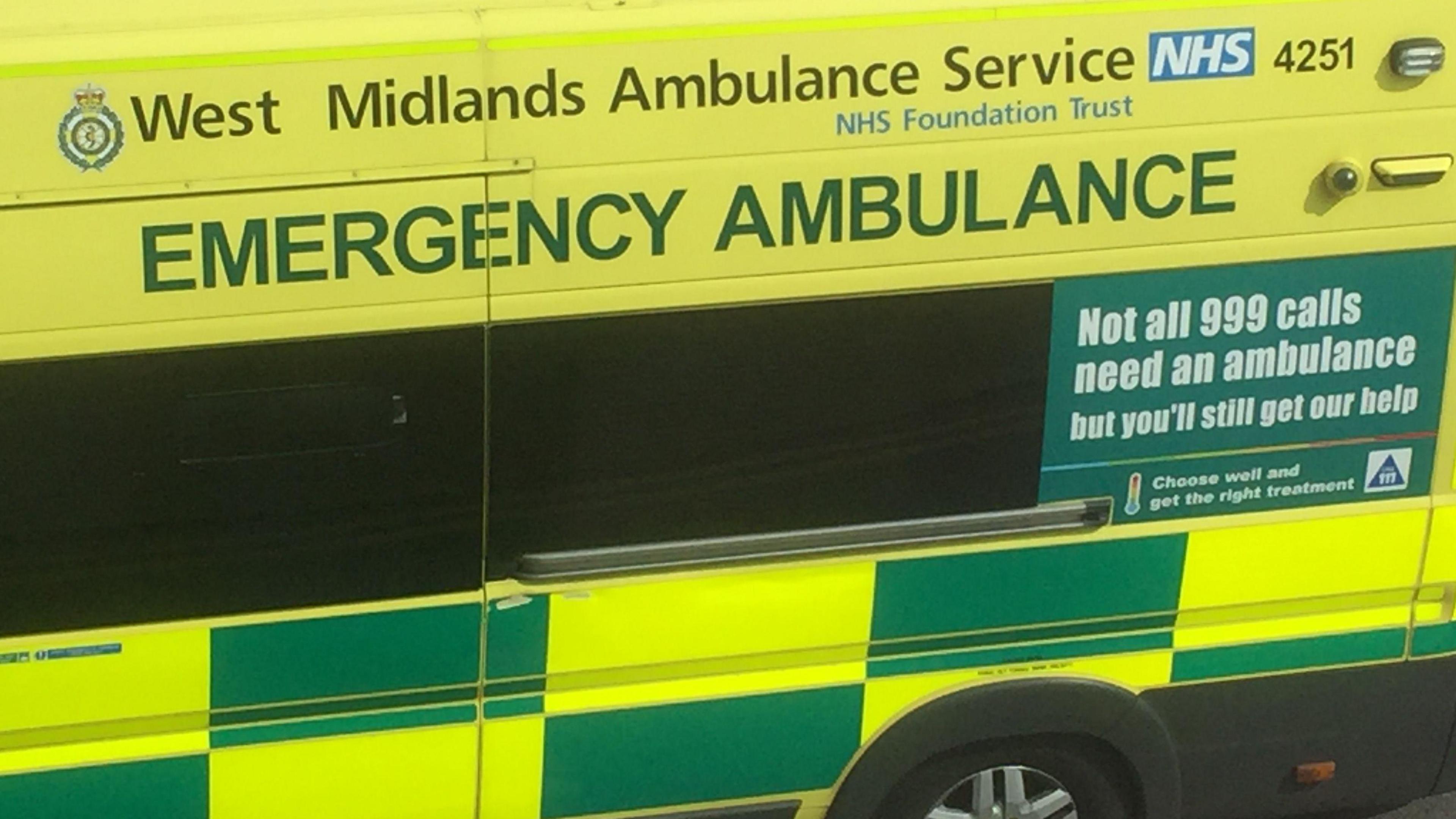
In October, 37 ambulance patients waited more than eight hours to be admitted to Worcestershire's emergency departments
Figures for November showed the number of attendances at the county's emergency department was 9.6% higher than the same period in 2023.
Senior managers shared concerns at a trust board meeting on Tuesday.
"That equates to almost 1,000 attendances more... these are not insignificant numbers," said director of performance Chris Douglas.
"We have had up to 43 patients in spaces that we don't routinely put patients."
Mr Douglas said escalation processes had also been put in place after 36 patients waited more than eight hours in ambulances to be handed over in October.
Corridor care
On top of increasing demand, A&E staff have also faced other challenges.
Repairs to flooring at the Worcestershire Royal's new £35m emergency department meant patients were spread across two floors in October and November.
Managers said the introduction of a new electronic patient record system last month had also hit productivity.
Chief nursing officer Sarah Shingler said the amount of care in corridors and overcrowding had led to an increase in falls among patients.
Mr Douglas said an audit of A&E patients was currently being carried out, "to understand where else patients have already tried, and what have been the blockages".
Follow BBC Hereford & Worcester on BBC Sounds, Facebook, external, X, external, and Instagram, external.
Related topics
- Published29 November 2024
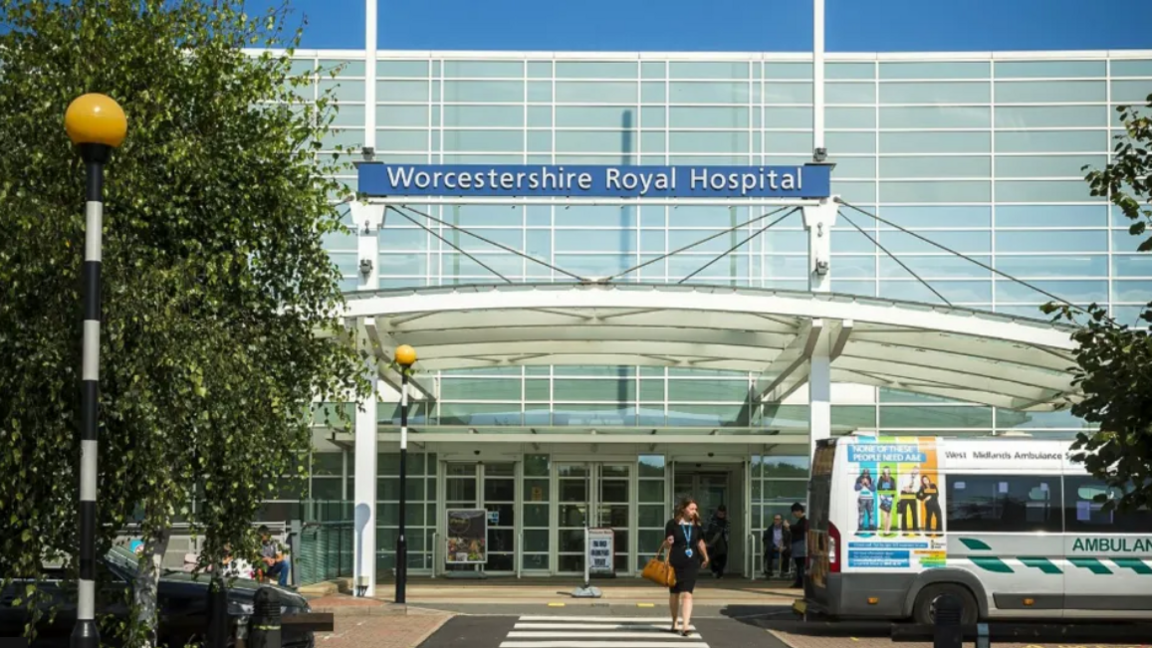
- Published6 September 2024
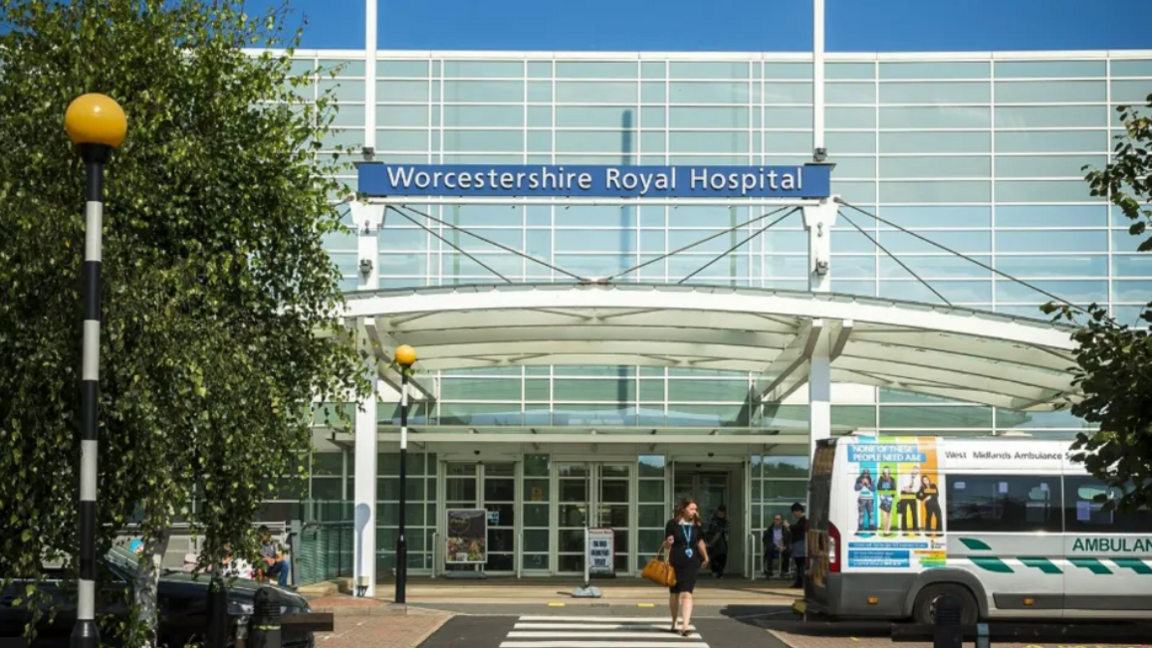
- Published16 October 2023
